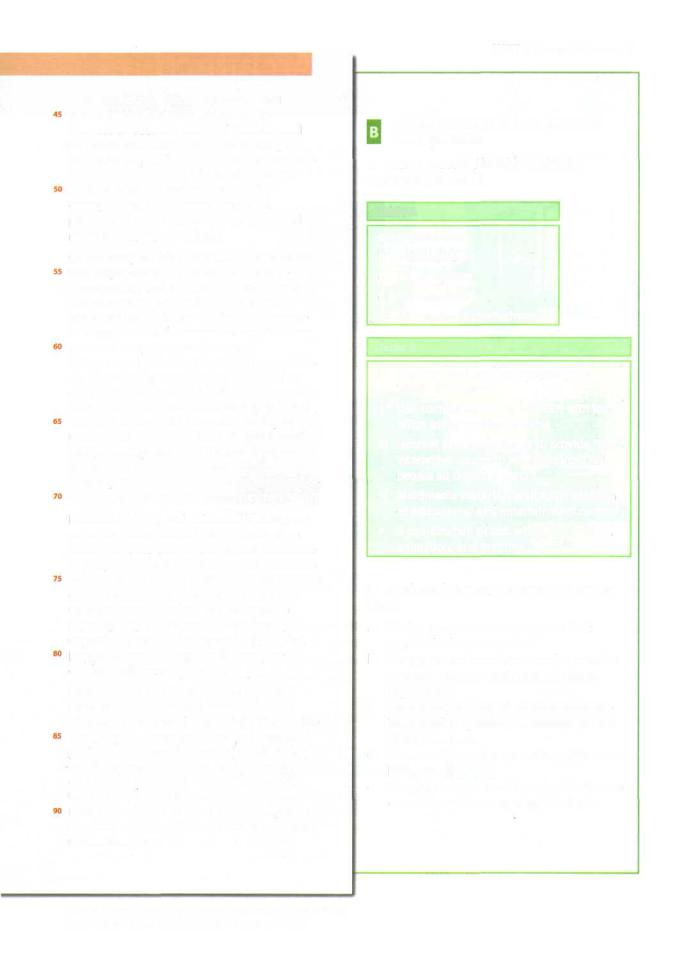
Oxford English for Information Technology / unit1
.pdf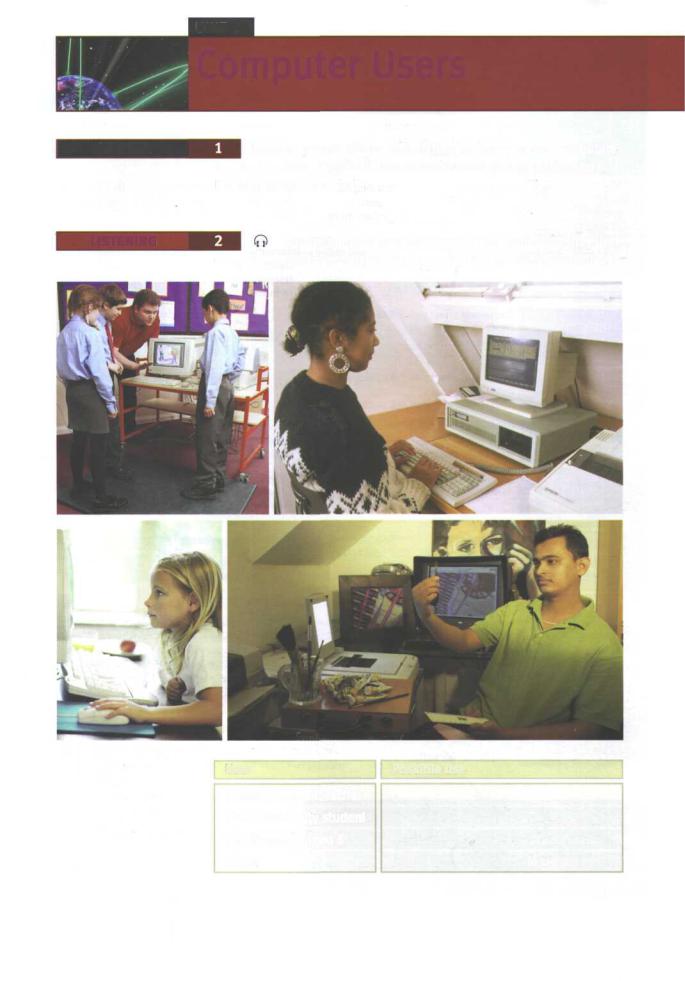
|
UNIT 1 |
|
Computer Users |
STARTER |
Work in groups. Share information on how you use computers |
|
in your free time. Compare answers with other groups and make a |
|
list of uses for your class. |
LISTENING |
You are going to hear four people talk about how they use |
|
computers. Before you listen, try to predict the uses they describe. |
User |
Possible use |
primary school teacher
Open University student
girl (Louise), aged 6
artist
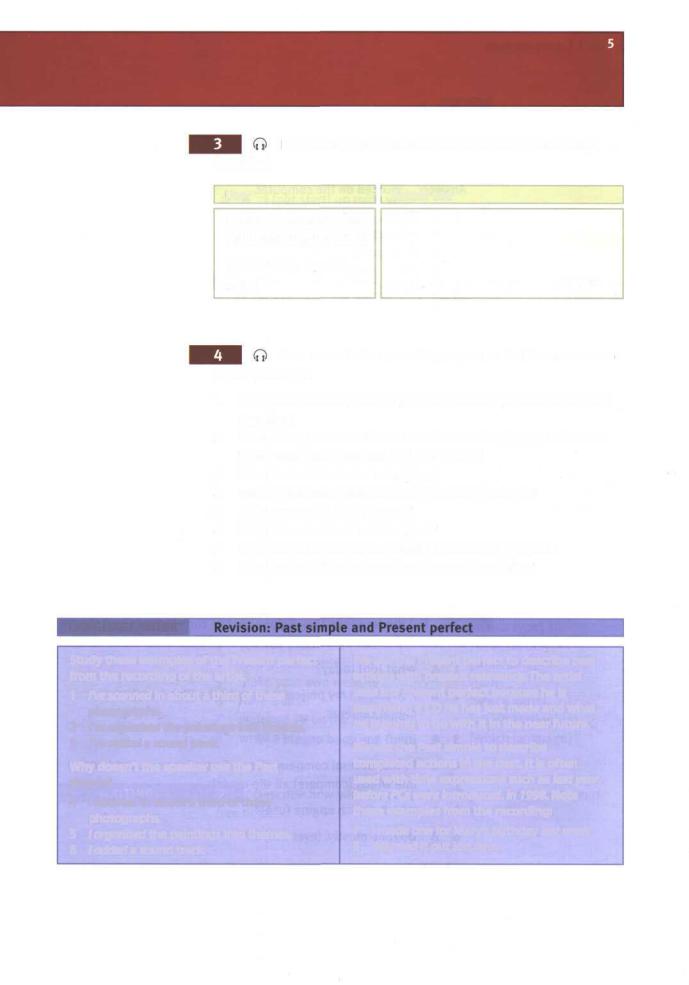
Now listen to the recordings and note the actual uses
described.
User |
Actual use |
primary school teacher
Open University student
girl (Louise), aged 6
artist
Now listen to the recordings again to find the answers to these questions:
1How does the story-telling program encourage children to work together?
2In what way is the children's reaction to this program different from other uses they make of computers?
3What is the OU student studying?
4What opportunity has she to meet other students?
5What can you do with Pets 3?
6What does Louise do with clipart?
7How did the artist display work to dealers in the past?
8What is the difficulty in selling through a website?
LANGUAGE WORK
Study these examples of the Present perfect from the recording of the artist.
1I've scanned in about a third of these photographs.
2I've organised the paintings into themes.
3I've added a sound track.
Why doesn't the speaker use the Past simple?
4/ scanned in about a third of these photographs.
5/ organised the paintings into themes.
6/ added a sound track.
We use the Present perfect to describe past actions with present relevance. The artist uses the Present perfect because he is describing a CD he has just made and what he is going to do with it in the near future.
We use the Past simple to describe completed actions in the past. It is often used with time expressions such as lastyear, before PCs were introduced, in 1998. Note these examples from the recording:
7I made one for Mary's birthday last week.
8We tried it out last term.
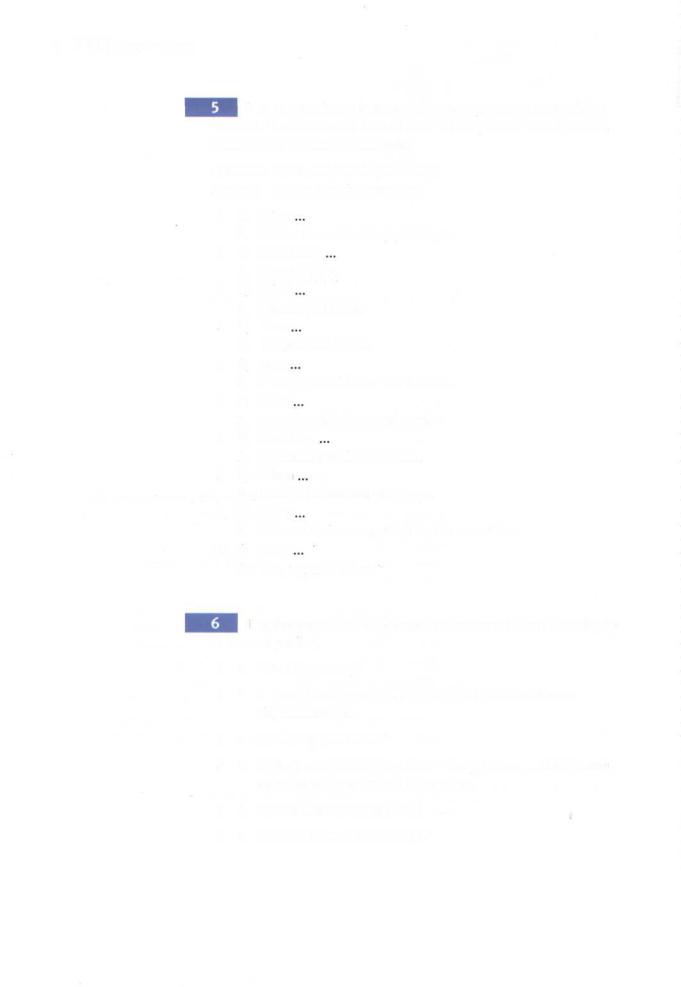
6 UNIT 1 Computer Users
The artist is being interviewed. Make questions to match his answers. Use the correct form of the Past simple or Present perfect, whichever is correct. For example:
Question: What did you do yesterday?
Answer: Worked on the computer.
1 Q |
What |
A |
Worked on a CD of my paintings. |
2Q How many
A About a third.
3Q What
|
A |
I destroyed them. |
4 |
Q |
How |
|
A I scanned them in. |
|
5 |
Q |
How |
|
A I've organised them into themes. |
|
6 |
Q |
Have |
|
A Yes, I've added a sound track. |
|
7 |
Q |
How long |
|
A It's taken me about a week. |
|
8 |
Q |
When |
|
A I started about ten years ago. |
|
9 |
Q |
What |
|
A Before I had a computer, I had to use slides. |
|
10 |
Q |
Have |
|
A Yes, I've sold a few. |
|
Put the tenses in this dialogue in the correct form: Past simple or Present perfect.
1A What (do) today?
2B I (work) on my project. I (search) the Web for sites on digital cameras.
3A (find) any good ones?
4B I (find) several company sites - Sony, Canon, ... but I (want) one which (compare) all the models.
5A Which search engine (use)?
6B Dogpile mostly. (ever use) it?

UNIT 1 Computer Users 7
7A Yes, I (try) it but I (have) more luck with Ask Jeeves. Why don't you try it?
8B I (have) enough for one night. I (spend) hours on that project.
9A I (not start) on mine yet.
10B Yeh? I bet you (do) it all.
PROBLEM-SOLVING |
How do you think these professions might use computers? |
||
Compare answers with others in your group. |
|
||
architects |
|
|
|
interior designers |
|
|
|
farmers |
|
|
|
landscape gardeners |
|
|
|
musicians |
|
|
|
rally |
drivers |
|
|
sales people |
|
|
|
SPEAKING |
Work in pairs. Find out this information from your partner. |
||
Make sure you use the correct tense in your questions. For example: |
|||
download music from the Internet |
[what site] |
||
A Have you ever downloaded music from the Internet? |
|||
B What site did you use? |
|
|
|
1 |
send a video email attachment |
[who to, when] |
|
2 |
fit an expansion card |
[which type] |
|
3 |
replace a hard disk |
[what model] |
|
4 |
fix a printer fault |
[what |
kind] |
5 |
make your own website |
[how] |
|
6 |
have a virus |
[which virus] |
|
7 |
watched TV on the Internet |
[which |
station] |
8 |
write a program |
[which |
language] |
WRITING |
Describe how you use computers in your study and in your |
||
free |
time. |
|
|
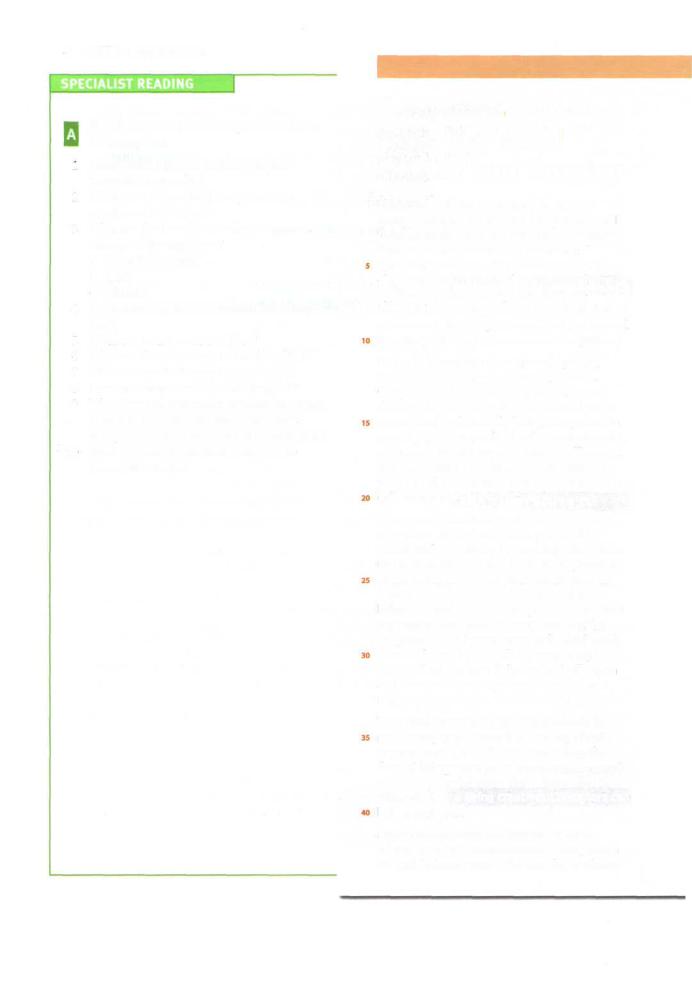
8 UNIT 1 Computer Users
Find the answers to these questions in the following text.
1Name some types of devices that use 'computers on a chip'.
2What uses of handheld computers are mentioned in the text?
3What are the benefits of using computers with the following items?
a Security systems b Cars
c Phones
4What smart devices are mentioned in the text?
5What are smart cards used for?
6What are the advantages of multimedia?
7What can medical expert systems do?
8How can computers help the disabled?
9What types of computing systems are made available to people in remote locations using electronic classrooms or boardrooms?
10What aspects of computing can people power determine?
Computers
Make the World
Smaller and Smarter
The ability of tiny computing devices to control complex operations has transformed the way many tasks are performed, ranging from scientific research to producing consumer products. Tiny 'computers on a chip' are used in medical equipment, home appliances, cars and toys. Workers use handheld computing devices to collect data at a customer site, to generate forms, to control inventory, and to serve as desktop organisers.
Not only is computing equipment getting smaller, it is getting more sophisticated. Computers are part of many machines and devices that once required continual human supervision and control. Today, computers in security systems result in safer environments, computers in cars improve energy efficiency, and computers in phones provide features such as call forwarding, call monitoring, and call answering.
These smart machines are designed to take over some of the basic tasks previously performed by people; by so doing, they make life a little easier and a little more pleasant. Smart cards store vital information such as health records, drivers' licenses, bank balances, and so on. Smart phones, cars, and appliances with built in computers can be programmed to better meet individual needs. A smart house has a built-in monitoring system that can turn lights on and off, open and close windows, operate the oven, and more.
With small computing devices available for performing smart tasks like cooking dinner, programming the VCR, and controlling the flow of information in an organization, people are able to spend more time doing what they often do best - being creative. Computers can help people work more creatively.
Multimedia systems are known for their educational and entertainment value, which we call 'edutainment'. Multimedia combines
